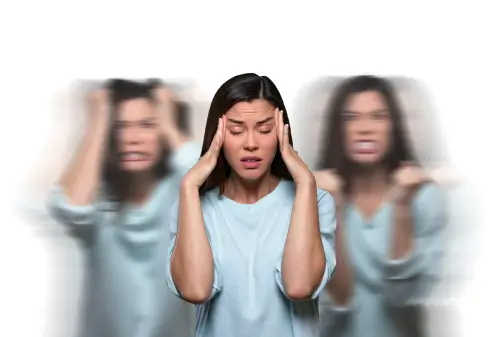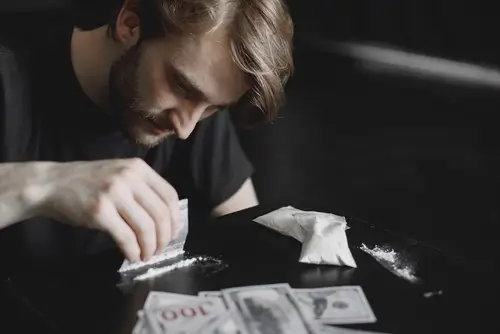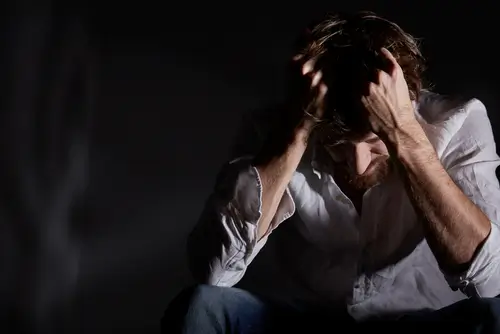The relationship between cocaine and bipolar disorder is a topic that has gained popularity in recent years due to the increase in cocaine use and bipolar disorder diagnoses. Bipolar disorder presents unique challenges for those who struggle with substance abuse, while cocaine has been found to have a complex and potentially detrimental impact on individuals with bipolar disorder. By understanding the relationship between cocaine and bipolar disorder, we can enhance our knowledge and develop more effective strategies to support those affected by this challenging dual diagnosis.
In this article, we will examine what bipolar disorder and cocaine are, the relationship between bipolar disorder and substance use disorder, how cocaine affects bipolar disorder, and treatment options for cocaine use and bipolar disorder.
What is Bipolar Disorder?
According to the National Institute of Mental Health, bipolar disorder is a mental illness that can cause shifts in an individual’s mood, energy, or activity levels. Bipolar disorder is a type of mood disorder that causes a wide range of moods, from extremely happy, known as manic episodes, to extremely sad, known as depressive episodes.
There are three different types of bipolar disorder on the bipolar spectrum. These three types are:
- Bipolar I Disorder: Bipolar I disorder can be identified when an individual experiences a manic episode. This involves the individual experiencing a significant surge in energy and intense feelings of being invincible. Individuals with bipolar I disorder can also experience depressive or hypomanic episodes.
- Bipolar II Disorder: Bipolar II disorder is diagnosed when someone experiences a major depressive episode and at least one hypomanic episode. It’s important to note that individuals with bipolar II disorder typically return to their normal functioning level between these episodes. It is common for individuals with bipolar II disorder also to have other mental health conditions like anxiety disorders or substance use disorders. The latter can worsen symptoms of depression or hypomania, leading to increased difficulties in daily life.
- Cyclothymic Disorder: Cyclothymic disorder is a less severe type of bipolar disorder that involves frequent mood swings. Individuals with cyclothymia experience periods of hypomania and depressive symptoms, but these are milder compared to bipolar I or II disorder.
Learn more about how mental health facilities may treat bipolar disorder here.

Signs and Symptoms of Bipolar Disorder
The signs and symptoms of bipolar disorder can vary widely depending on the individual, as they may experience both manic and depressive episodes. Because of this, it’s essential to understand the depressive and manic symptoms of bipolar disorder. Some common signs can include the following:
- Intense excitement
- Difficulty sleeping
- Rapid and excessive speech
- Inflated self-esteem
- Irritability and agitation
- Persistent feelings of sadness and worry
- Loss of interest in activities
- Fatigue and low energy
- Trouble concentrating
- Changes in sleep and appetite
- Thoughts of death or suicide
What is Cocaine?
Cocaine is a highly addictive stimulant drug that affects energy and attention levels. Cocaine is derived from the South American coca plant and is typically seen in a white powder form. It can also be called coke, blow, snow, or crack. Due to its high risk of abuse and addiction, cocaine is classified as a Schedule II controlled substance.
According to the National Institute on Drug Abuse, 4.8 million people reported using cocaine in 2021. Of those, 24,486 people died from a cocaine overdose or an overdose involving cocaine. Due to its highly addictive nature, the use of cocaine can quickly develop into a substance use disorder, where individuals experience a compulsive need to use the drug despite its harmful effects.
Effects of Cocaine Use
The effects of cocaine use can vary depending on the method of use. Cocaine can be consumed through snorting, smoking, or injection, with smoking and injecting resulting in a more immediate high. Despite the initial pleasurable effects, cocaine abuse can significantly affect physical and mental health. Some of the most common effects of cocaine use include:
- Feelings of euphoria
- Increased heart rate and blood pressure
- Restlessness or insomnia
- Increased risk of respiratory problems
- Decreased appetite and weight loss
- Impaired cognitive function, including memory loss and difficulty concentrating
- Increased risk of developing an addiction
- Seizures

Bipolar Disorder & Substance Abuse
Research from the National Epidemiologic Survey on Alcoholism and Related Conditions (NESARC) in 2021 has shed light on the relationship between bipolar disorder and substance use disorders (SUD). The survey, conducted in 2001 and 2002, interviewed approximately 43,093 individuals. The results indicate a higher prevalence of comorbidity with alcohol and substance-related disorders in individuals with bipolar disorder, notably bipolar I disorder, than the general population. These rates can reach up to 50%.
Through this research, NESARC found that alcohol was the most commonly used substance among individuals with bipolar disorder, affecting 42% of the individuals. Cannabis use and other drug use disorders, including cocaine and amphetamines, affected 20% and 17% of individuals, respectively. Due to the high risk of substance abuse, it’s important to understand the complex relationship between cocaine and bipolar disorder.
How Cocaine Affects Bipolar Disorder
While we can see that cocaine use is more prevalent among individuals with bipolar disorder, we can now discuss how cocaine affects bipolar disorder.
Managing symptoms of bipolar disorder can be challenging, leading individuals to seek coping mechanisms, even if they are unhealthy. The exhaustion caused by bipolar symptoms may drive individuals to use stimulants like cocaine during low periods to boost energy, focus, and sociability. However, this coping strategy can backfire, as we have seen the harmful effects of cocaine use.
The intertwining of bipolar disorder and cocaine use presents unique challenges, as the symptoms and consequences of each condition can exacerbate one another. It underscores the importance of understanding the complexities involved and seeking appropriate treatment for both conditions.

Cocaine and Bipolar Disorder Treatment
If someone suspects they have either cocaine use disorder or bipolar disorder, it is crucial for them to seek professional help for an accurate assessment and diagnosis. Cocaine use disorder and bipolar disorder are co-occurring disorders, which are when an individual experiences two separate disorders simultaneously.
The first step in treating co-occurring disorders often involves a detoxification process. For individuals who have been using cocaine for an extended amount of time, medically supervised detox is recommended to help the body adjust to the absence of the drug and to manage any withdrawal symptoms.
After detox, treatment for both cocaine use and bipolar disorder will be discussed. This can involve cognitive-behavioral therapy, inpatient treatment, and the use of medications. Medications like mood stabilizers, antipsychotics, and antidepressants may be used throughout treatment.
It’s important to remember that every individual is different, and so the treatment used may differ from person to person. By utilizing various treatment therapies, individuals can address every aspect of addiction, increasing the likelihood of a successful recovery and improved well-being.
Continue reading here to learn more about other co-occurring disorders.
Co-Occurring Disorders Treatment at Launch Centers
Experiencing bipolar disorder while also being addicted to cocaine can cause devastating effects on an individual’s physical, mental, and social well-being. By examining the relationship between cocaine use and bipolar disorder, we have seen the impacts that can be made. This is why receiving co-occurring disorder treatment is imperative to living a healthier life.
At Launch Centers in Los Angeles, CA, we provide addiction treatment, mental health services, and dual diagnosis treatment for those suffering from co-occurring disorders. Dual diagnosis treatment refers to a treatment designed to treat mental health conditions and drug addictions at the same time, like cocaine and bipolar disorder. Our treatment center is focused on comprehensive, holistic, and individual treatment to ensure our clients receive the help they need.
If you or a loved one are suffering from co-occurring disorders, mental health conditions, or substance abuse, contact us today to learn more about our programs. Our team of highly trained medical staff is here to guide you toward a sober, happier life.





